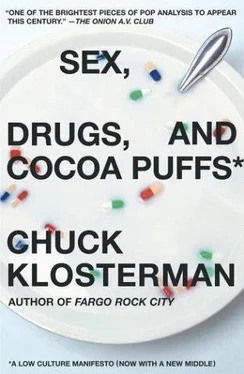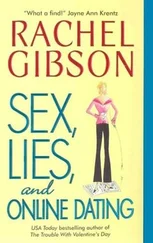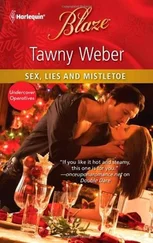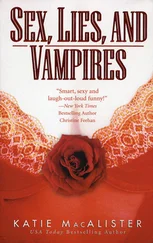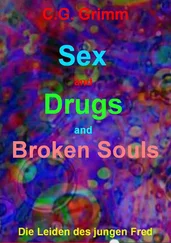However, the demand for such an oasis disappears once an outcast escapes from the imposed slavery of youth athletics; by the time they reach ninth grade, it’s perfectly acceptable to just quit the team and shop at Hot Topic. Most youth soccer players end up joining the debate team before they turn fifteen. Meanwhile, the kind of person who truly loves the notion of sports (and—perhaps sadly—unconsciously needs to have sports in their life) doesn’t want to watch a game that’s designed for losers. They’re never going to care about a sport where announcers inexplicably celebrate the beauty of missed shots and the strategic glory of repetitive stalemates. We want to see domination. We want to see athletes who don’t look like us, and who we could never be. We want to see people who could destroy us, and we want to feel like that desire is normal. But those people don’t exist in soccer; their game is dominated by mono-monikered clones obsessed with falling to their knees and ripping off their clothes. I can’t watch a minute of professional soccer without feeling like I’m looking at a playground of desperate, depressed fourth-graders, all trying to act normal and failing horribly.
In short, soccer players kind of remind me of “my guys.”
Now, when I say “my guys,” I don’t mean kids who are actually mine, as I am not father material (or human material, or even Sleestak material). When I say “my guys,” I am referring to a collection of scrappy, rag-tag, mostly unremarkable fourth-and fifth-graders I governed when I was sixteen years old. During the summer in 1988, I worked as a totally unqualified Little League baseball coach. This is noteworthy for one reason and one reason only: I remain the only youth sports instructor in the history of my town who was ever fired, a distinction that has made me both a legend and an antihero (at least among “my guys”). And even though I happened to be coaching the game of baseball that summer, this was the experience that galvanized my hatred for the game of soccer—and particularly my hatred for the ideology that would eventually become the Youth Soccer Phenomenon.
Between my sophomore and junior year of high school, I applied to coach Pee Wee and Midget baseball in Wyndmere, North Dakota, the tiny farming town (pop. 498) where I lived and breathed and listened to Guns N’ Roses. The competition for this position was not intense: There were twenty-three kids in my class and only fourteen in the grade ahead of me, and almost all of the other boys had to spend the summer working on their family farms. Theoretically, I should have been in the same position. However, I was too clever to farm and too lazy to work, and I simply had no interest in shit like cultivating (or in cultivating shit, for that matter). Instead, I decided to spend my summer coaching Pee Wee and Midget baseball for $250 a month. I had to deliver my job application to the Wyndmere Park Board, and—since this job was always given to local high school boys—one of the questions on the application asked who my role models were. I wrote “Bobby Knight and George Orwell,” and I wasn’t joking. But it really didn’t matter what I wrote, since I was the only applicant. “We’re excited by your enthusiasm,” said the vaguely blonde Park Board president.
We had practice three times a week. The Pee Wee kids worked out from 9 A.M. to 10 A.M., and this was always a horrifically boring sixty minutes. These were really little kids (like, under four feet tall), and they hit off a batting tee. As long as nobody broke their clavicle or vomited, I viewed practice as a success. Only one kid had any talent (a left-handed shortstop!), but aptitude was pretty much a nonfactor: I played everybody the same amount and generally tried to act like that black dude from Reading Rainbow . I mostly just tried to convince them to stop throwing rocks at birds.
The Midgets, however, were a different story. Though not vastly dissimilar in age (the Pee Wees were eight-and nine-year-olds and the Midgets were ten and eleven), the Midgets were “my guys,” and I intended to turn them into a war machine. At the Midget level, there was real pitching. There was base stealing. There was bunting. And—at least in my vision—there was hitting and running, double switching, outfield shading, middle-relieving, and a run-manufacturing offensive philosophy modeled after Whitey Herzog’s St. Louis Cardinals. I’m convinced we were the only Midget League team in North Dakota history to have a southpaw closer. I even implemented the concept of physical conditioning to my preseason regime, which immediately raised the eyebrows of some of the less-competitive parents. However, my explanation for making ten-year-olds run wind sprints was always well-founded. “The running is not important, in and of itself,” I told one skeptical mother. “What’s important is that ‘my guys’ realize that success doesn’t come without work.” Weeks later, I would learn that this mother respected my idealism but disliked the way I casually used the phrase “in and of itself.”
To be honest, I was merely coaching these kids the way I had wanted to be coached when I was in fourth grade. I was a pretty fucking insane ten-year-old. I was the kind of kid who hated authority—but sports coaches were always an inexplicable exception. For whatever the reason, a coach could tell me anything and I’d just stand there and listen; he could degrade me or question my intelligence or sit me on the bench to prove a point that had absolutely nothing to do with anything I did, and I always assumed it was completely valid. I never cared that much about winning on an emotional level, but winning always made sense to me intellectually; it seemed like the logical thing to want. Mostly, I just wanted the process of winning to be complicated . I was fascinated by anything that made sports more cerebral and less physical; as a consequence, my coaching style became loosely patterned on the life of Wile E. Coyote. We’d practice conventionally from 10:00 to 11:00, but then we’d spend forty-five minutes memorizing a battery of unnecessary third-base signals (I recall that tugging on my “belt” meant “bunt,” because both words start with the letter b ). I also assaulted their fifth-grade cerebellums with dozens of strategic hypotheticals: “Let’s assume our opponent has runners on first and third with no outs, and they send the trail runner to second with the count at 0–2,” I would theorize. “What is our objective?” One frail kid with eyeglasses answered pretty much everything; most of the others just discussed their favorite flavors of Big League Chew. I constantly questioned their commitment to excellence.
Still, four or five of “my guys” were oddly enthusiastic about my Pyramid of Success, and that was enough to kill (or at least scare) most of our early season opponents. But what I kept noticing was that the other fifteen kids on my squad didn’t care if we won or lost. They didn’t seem to care about anything, really, or at least nothing that had an application to baseball. I couldn’t tell what they found more excruciating: when they didn’t get to play (because sitting on the bench was boring), or when they had to play (because that meant another two strikeouts and an hour of praying that no fly balls would be hit in their general direction). In fact, some of “my guys” started complaining to their mothers. And near the end of June, I was told to attend the next Wyndmere Park Board meeting for a “free-form discussion about my coaching style.”
Now, it should be noted that Wyndmere didn’t really need a park board, because Wyndmere doesn’t have a park. Wyndmere does have the Rock Garden (not a rock garden, but the Rock Garden), which is a stone enclosure that’s as big as a city block and augmented by a forty-foot replica of a Scottish castle (it also has a basketball court and several uncomfortable picnic tables). When, who, or why the Rock Garden was built remains a mystery on par with Stonehenge, so living in Wyndmere always made you feel a little like Leonard Nimoy on In Search Of . And what’s even crazier is that the Wyndmere Park Board had no clear jurisdiction over the Wyndmere Rock Garden; the Wyndmere Park Board seemed to exclusively serve as a legislative body for Little League athletics. When the secretary read the minutes from the May meeting, the only item was, “Board approves motion to hire Chuck Klosterman as baseball coach.”
Читать дальше
